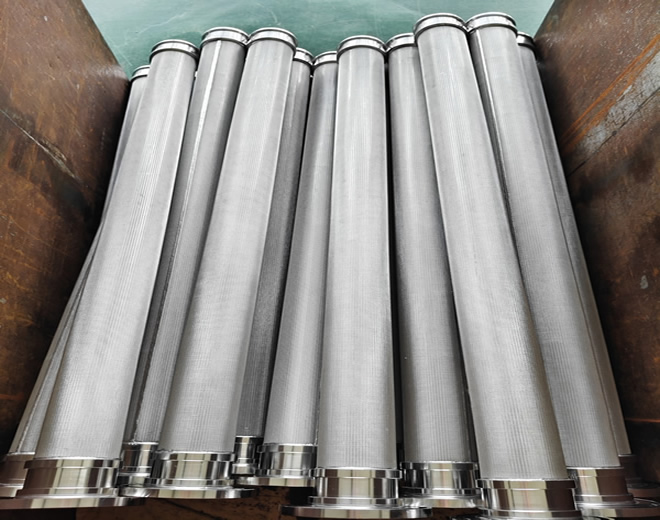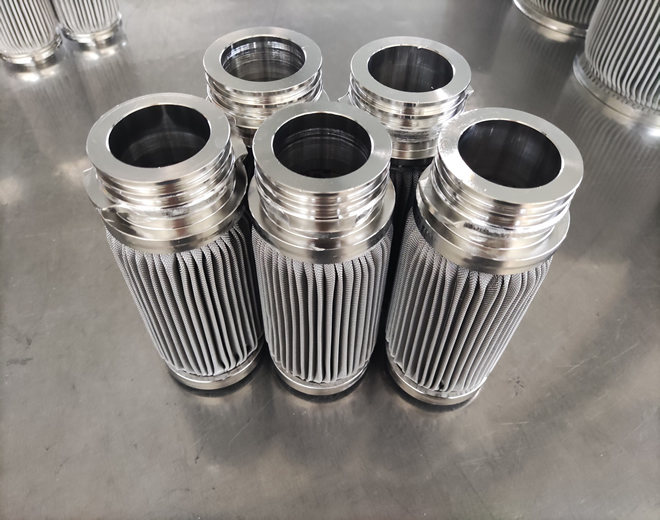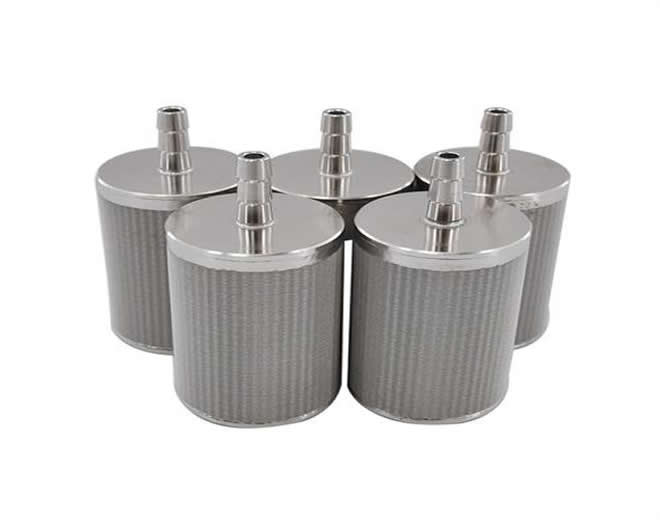Sintered mesh filter elements are made from multiple layers of woven metal mesh, precisely laminated and sintered under high-temperature vacuum conditions.
This process combines the strength of metal materials with the precision of multi-layer filtration structures,
making them highly reliable in demanding industrial applications. Below are the main advantages:
http://www.zhongbangfilter.com/116.html

After high-temperature vacuum sintering, each mesh layer is firmly bonded at the contact points, forming a robust and stable structure. Even under high pressure or frequent backwashing, the filter media will not loosen or deform.
The multi-layer sintered construction provides high compressive and tensile strength, enabling the filter to withstand high differential pressures. It is especially suitable for high-pressure filtration systems in hydraulic, fuel, and chemical industries.
The sintered mesh has a uniform pore size distribution, with filtration ratings ranging from 1 micron to several hundred microns, customizable to specific needs. The filtration accuracy remains stable over time, unaffected by mechanical stress or vibration.
Made from stainless steel or other alloy materials such as 316L, Hastelloy, or Inconel, these filters can operate reliably at temperatures above 600°C and resist acids, alkalis, salts, and various organic solvents.
The rigid and smooth surface of the sintered mesh prevents dirt adhesion, allowing for repeated cleaning by backflushing, ultrasonic cleaning, or chemical cleaning, significantly reducing operational costs.
The mesh can be configured with different numbers and types of layers, such as protective layers, dispersion layers, filtration layers, and support layers, to achieve higher flow capacity and enhanced mechanical performance.
Compared with other materials of the same filtration precision, sintered mesh offers greater permeability, ensuring efficient filtration with lower pressure loss.
Conclusion
Sintered mesh filter elements combine high strength, heat resistance, corrosion resistance, stable filtration precision, and reusability. They are ideal for critical filtration processes in industries such as petrochemicals, pharmaceuticals, food and beverage, water treatment, aerospace, and machinery manufacturing.


